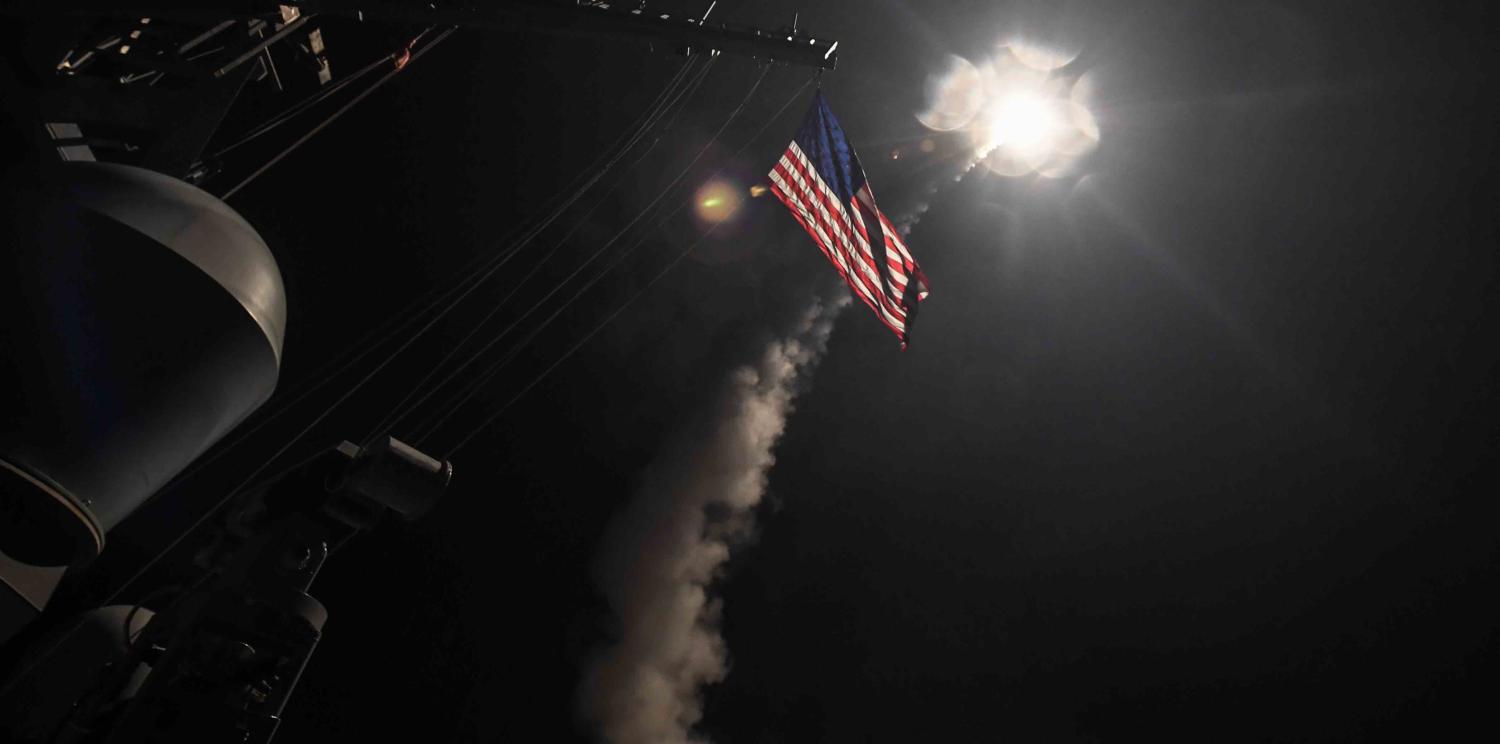President Donald Trump is under enormous pressure to respond militarily to the latest provocation by the Assad regime, but he would do so against all of his instincts and earlier pronouncements to end US military involvement in the Syrian war.
Just days before the chemical attacks in Douma, Trump announced he wanted US troops out of Syria within months, and that the fight against the Islamic State was largely completed.
Some claim that Trump’s public announcement of US withdrawal in Syria emboldened Assad to conduct these attacks. But the fact is that there have been at least eight alleged chemical attacks by the Assad regime since Trump took office.
Assad has continually tested the boundaries of what the international community and his allies are willing to accept, and has gotten away with it.
Either way, the chemical attacks in Douma changed the calculus for Trump. Although he adamantly wants US military involvement to end, Trump is now not only forced to respond but also to respond in a more robust manner than the single-strike last year against an empty airfield.
Trump finds himself in the same position as his predecessor, having heavily criticised Barack Obama for letting a red line be crossed without retaliating.
Only a significant escalation of US force will be credible enough to deter Assad against future use of chemical weapons or attacks against civilians. It is not only a matter of punishing Assad, destroying his ability to use chemical weapons, or responding reciprocally to a provocation. The very credibility of the US is at stake.
Yet the US will not win the escalation game. If the US escalates, then Assad’s allies, particularly Russia, can escalate in turn. Assad’s allies have proved that they are able and, more importantly, willing to do more. It is this conundrum that is delaying what everyone believes to be imminent US action.
Furthermore, escalation without a coherent strategy, a thing that has been notably absent in Washington since the conflict began, will only cause additional violence and suffering.
It is ironic that the path Trump would most want to follow, and the only hope for any conclusion to the sordid Syrian war, is to support a negotiated political settlement spearheaded by Russia. At a time when the US most needs to work with the Russians to end this conflict for their mutual benefit, Trump is unable to reach out.
He is thwarted both domestically, given the Mueller investigation and the widespread belief among Americans that his campaign colluded with Russia, and internationally, by Russia’s own actions in the region.
It would be naive of the US to think Russia will abandon Assad altogether. Assad has been good for Russia.
Russia’s support of his regime and involvement in Syria offered a foothold back into the Middle East, a region where, until now, Russia has not had a significant presence since the end of the Cold War. And Russia has been able to thwart American dominance by pushing back against US interests and influence in the region.
Neither can the US afford a complete collapse of the Assad regime. That would mean reigniting the civil war just as it is settling down. The fear has always been that the alternative to Assad will be much worse, that Assad’s brutality will be overshadowed by the chaos that would come in lieu of him.
But there is manoeuvrability. Conventional thinking holds that the Trump administration and coalition allies need to do more to pressure Russia to pressure Assad. But Russia does not need to be pressured further. What it needs is an opportunity.
Russia knows full well that Assad is a problematic ally. Assad’s alleged chemical attacks and attacks against civilians have not only sullied Russia’s reputation but also affected its political and economic interests in Syria and the Middle East. Russia will only be able to make full use of the leverage it has in Syria once a negotiated settlement is reached.
The longer the conflict goes on, the more difficult it becomes for Russia to contain its differences with and gain the upper hand over Iran and Turkey. Russia wants to reap benefits from any reconstruction activity in Syria, but cannot do so without other rich international donors. It cannot afford all of the reconstruction costs, and therefore needs the West, Arab countries, and China. But their support for reconstruction depends on a negotiated political settlement.
Russia understands there will not be a final military victory, and for years has been pushing for a negotiated settlement. But Assad remains unconvinced and has resisted Russian pressure. Assad will not risk negotiating himself out of power. He wants to set the terms for a future peace.
Only US–Russian collusion, pushing for a negotiated settlement through Russian political pressure and US military action, will have any hope of changing Assad’s current mindset. This is the only way to put an end to the terrible violence that has already killed 400,000 people and displaced millions.
This is a scenario that carries great risk for both Washington and Russia, has little hope of coming to pass in the near term, but would be the best chance to end this terrible war.

